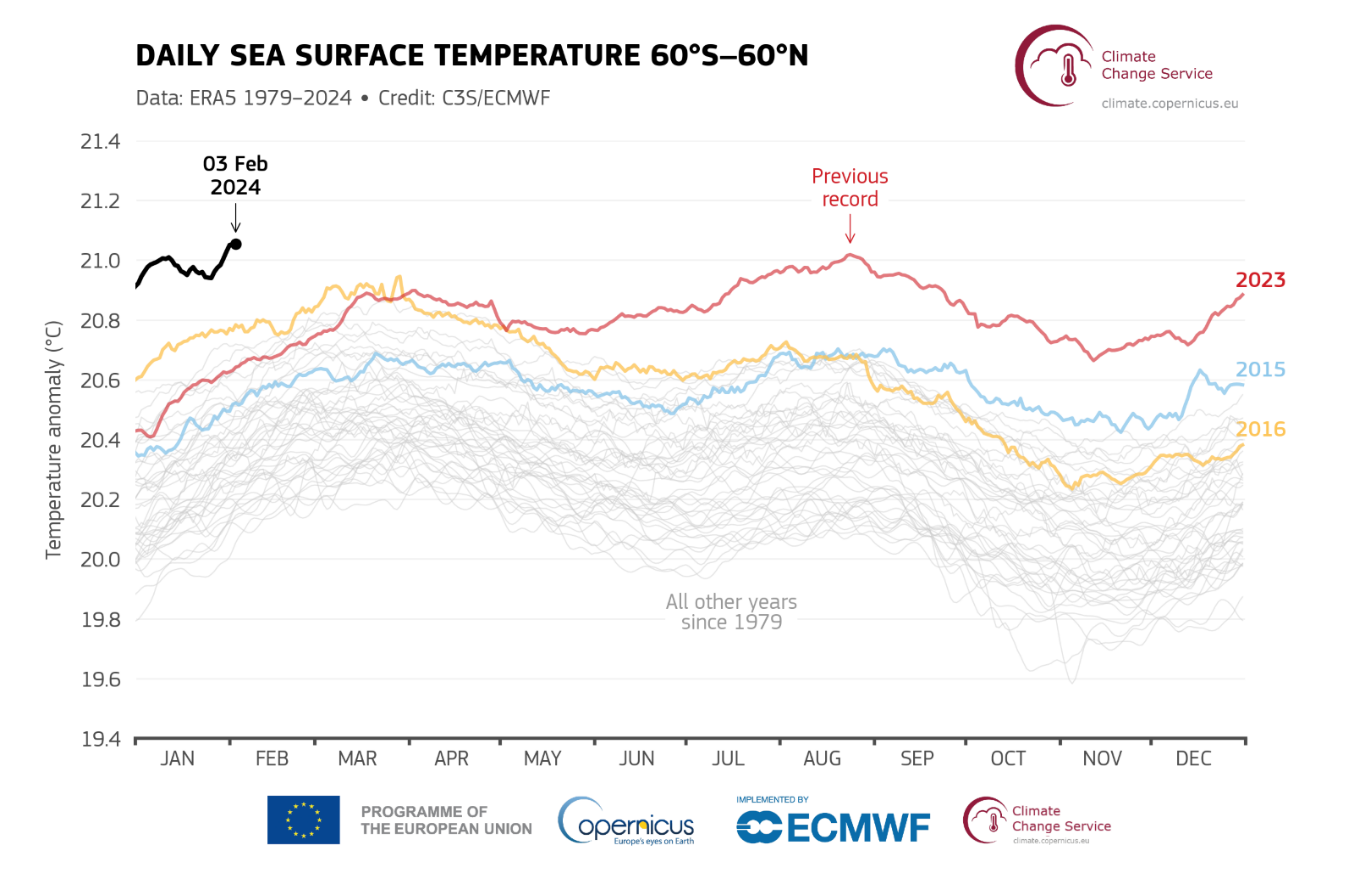Global heating breaches 1.5C for full year for first time as January sets new record
January is eighth consecutive month that has set a record as hottest for its respective month
Global warming has exceeded 1.5C across an entire year for the first time, with January breaking new temperature records, new findings have shown.
The first month of 2024 was 1.66C hotter, marking the warmest January and breaking yet another heat record after the troubling extremes of 2023, according to the European Copernicus Climate Change Service (C3S).
With this, the global mean temperature over the past twelve months, starting from February 2023 to January 2024, soared 1.52C above the pre-industrial average.
The findings mark the continued acceleration of global heating after last year broke the record for being the hottest year ever. January is also the eighth consecutive month that has set a record as the hottest for its respective month.
“2024 starts with another record-breaking month – not only is it the warmest January on record but we have also just experienced a 12-month period of more than 1.5C above the pre-industrial reference period,” Samantha Burgess, the deputy director of C3S, said.
This is the first time global average temperatures have been hotter by over 1.5C over a 12-month period.

In 2015, an international agreement was signed by 197 countries vowing to prevent the temperatures rising above 1.5C or maximum 2C above the pre-industrial levels.
However, this record does not yet mean we have breached the Paris Agreement target. But it takes us a lot closer to doing so, scientists say.
“Exceeding 1.5C in one year underlines the rapidly shrinking window of time humanity has to make deep emissions cuts and avoid dangerous climate change,” Dr Matt Patterson, postdoctoral research assistant in atmospheric physics at the University of Oxford, said.
However, he adds: “A single year above the 1.5C threshold is not enough to breach the Paris climate agreement as the agreement concerns temperatures averaged over 20 to 30 years.”
Scientists say while the sudden surge starting from 2023 is driven by natural causes like El Nino as well, the underlying issue remains that carbon pollution from burning fossil fuels.
“Warm ocean temperatures related to the El Niño event in the tropical Pacific will have contributed to the warm global temperatures, but the primary cause is increasing greenhouse gas concentrations in the atmosphere from burning of fossil fuels,” Dr Patterson says.
The C3S findings show Europe experienced a rollercoaster of temperatures – from chilly Nordic countries to scorching southern regions. Beyond Europe, some areas like eastern Canada, north-western Africa, the Middle East, and Central Asia were sizzling, while others like western Canada, central USA, and parts of Siberia were cooler than usual.

While the Arctic sea ice in January 2024 was close to average, Antarctica, which had sea ice coverage at a record low in 2023, saw its sixth-lowest sea ice extent at 18 per cent below average.
On land, some places like Europe, western USA, parts of Eurasia, and more got wetter than usual, while others, including parts of Spain and Australia, experienced drier conditions, leading to wildfires.

Recent reports have shown that temperature extremes are rising beyond the levels of scientific predictions. Last year some of the largest wildfires and long periods of heatwaves broke records across Asia, Europe and North America.
Winter was exceptionally mild across the Southern hemisphere, and now the northern hemisphere is also witnessing low snowfall in several parts, including South Asia and Europe.
Experts had been warning 2024 will beat 2023’s extremely high temperatures.
“Unless global emissions are urgently brought down to zero, the world will soon fly past the safety limits set out in the Paris climate agreement,” says Dr Joeri Rogelj, professor of climate science and policy at Imperial College London.
Join our commenting forum
Join thought-provoking conversations, follow other Independent readers and see their replies
Comments
Bookmark popover
Removed from bookmarks